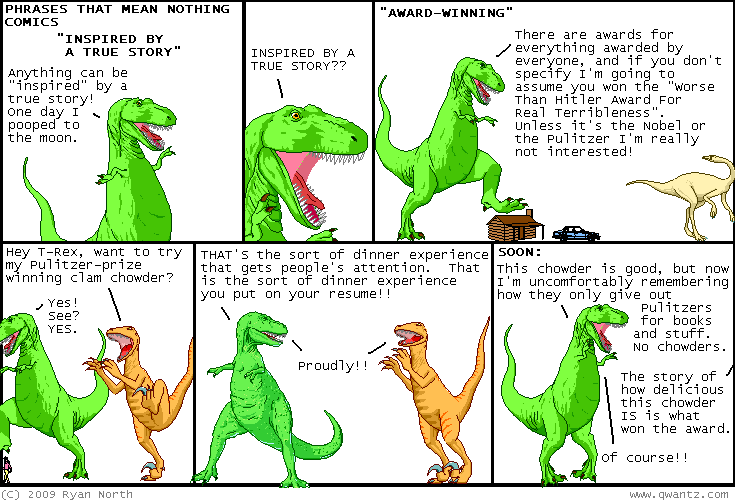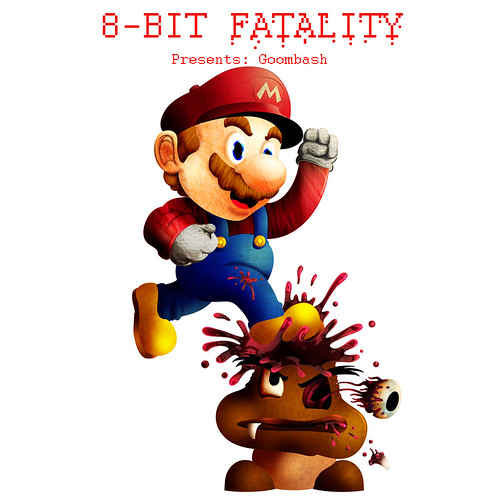I love my dad.
I don’t just love him, I’m proud of him and proud to be like him in many ways.
I might not say this enough, and there’s years of hurtful stuff (including punches) flung at him while we were both figuring out who I was in my teenage years that I probably should work harder to undo with my words now… but I’m really, really thankful that my dad is my dad.
I’ve been struck, as I get to know my own son, he’s almost 4, at just how much it’s going to hurt me when history inevitably repeats and he first tells me he hates me. Or that I’m stupid, or fat, or apelike… sorry dad. I really am proud of you, you’re not stupid, or ape like, and I’m always told I look like you, so hopefully you’re not ugly.
I’ve also been struck by what I want to, and don’t want to, pass on to and teach my son. And I’m struck by how good a job dad did with shaping me in a way that means, on the whole, I’ve made reasonably good decisions.
I don’t know if I’d be me, or dad would be the dad he is now if it weren’t for those stormy adolescent years either. But I certainly wish I’d been able to see some of this stuff more clearly then, and that while we had slightly different visions for what my life could be, or should be, his was a voice I should have listened to more… this isn’t to say he got everything right, or that he gets everything right, I don’t want to lionise him in de-aping him… but let me tell you, for this auspicious occasion (his birthday was yesterday), some things about my dad. Perhaps you know him, and perhaps these will be some things that you know about him, or perhaps you’ll be surprised by some of this, perhaps you’ve never met him (or me), in whoch case… indulge me.
I’ve come to understand that dad does things excellently because he’s driven by passion — not for himself and his own name — but for the inherent value of things themselves, for the benefit of others, and to the glory of the God who makes excellent things too… whether it’s a song on the guitar, a well crafted table tennis point, a video game or gadget review in a national publication (sometimes when it was too socially awkward to admit dad was a minister I had the fallback option of telling people he was a freelance games reviewer for the Sydney Morning Herald (which was true), sometimes I’d mumble the ‘minister’ bit and rush into the cool job so the conversation I was in would go there), a font (like Foxjump, the font Tourism Tasmania once used to brand the state, or the in house fonts for Mitchelton Presbyterian Church), odd bits of furniture, Bible talks, books (one on the Vic 20 computer and one on preaching)… dad is driven and disciplined and sets out to be a master, an artisan, because small stuff matters, because it says things about big stuff. And, I suspect, cause there’s joy in detail as much as there might be the devil. I realised recently when talking to someone about the experience of eating breakfast at a cafe with dad that he is basically a Platonist… there’s an ‘ideal’ form of everything (including eggs) out there, and all the ‘things’ of this world are opportunities to get close to that ideal (but sometimes they can also be judged against that ideal, so dad’s eyes will be drawn to the smallest inconsistencies)… I think this idealism is part of the drive, it’s not so much perfectionism (perhaps I’m recognising some of this in myself), but a wanting to get as close as humanly possible to these ideals (the difference, I think is one involves a striving for improvement, while the other involves always measuring yourself against unrealistic standards, I suspect it’s a mistake to see these as exactly the same thing). Not everyone sees the world this way, and seeing the world this way would be crippling if it weren’t matched with curiosity, imagination, intelligence, discipline, courage, and ability. What makes dad truly special is his God-given combination of these. What is, I think, the challenge of his ‘genius’ is realising that most of us aren’t wired this way, and it’s not just that we can’t see the world the same way, but that even if we could, we couldn’t do much about it… this difference can be hard, especially if people misunderstand the motives and expectations (even for those of us whose biology and environmental upbringing disposes us to being just like it). I don’t care as much about kerning or alignment as dad (but I care more about fonts than most people, statistically speaking). I, like many of his students, trainees, and staff, have endured robust critiques (according to his standards) of work I’ve produced. I’ve given up trying to write a non-run on sentence and adopted all manner of punctuation quirks like semi-colons, em dashes, parentheses, and ellipses in order to avoid comma pedantry… but mostly these bits of who dad is come together for my good, and the good of others. I’m a better writer (and preacher) because of him and this drive for excellence, and this is the testimony of many, many, others. It’d take me a long time to list out the ways these qualities manifest themselves on the ground in dad’s life, but I suspect this would be the testimony of many witnesses… One of the harder things, I suspect, for dad, is that he’s known as a practitioner of ministry when almost all his practice and preaching is driven by a coherent theological framework that is misunderstood (even by me), and I suspect he’d rather have passed on that, than a love for fonts, design, and 22 minute sermons (ask him about Deuteronomy 30, pronouns in Ephesians, and the destruction of the Temple sometime). I love that I’ve always been encouraged to dig deeply and imaginitively into God’s word, and to look for connections that make Jesus richer and more compelling and interesting. Two people I really, deeply, respect have commented to me recently about just how rare this capacity is, and I guess I’ve always taken it for granted as the way things are done.
I suspect it was not just misunderstanding each other, but also my taking dad for granted (and mum too, but it’s not her birthday) that was actually at the heart of our conflicts in my adolescence… but perhaps this is at the heart of the problems in most relationships everywhere, so that’s not all that profound…
This year at church we’ve been looking at Matthew’s Gospel, and at how Jesus is the archetypal epic hero. There’s this literary convention, or observation of how stories work, called ‘The Hero’s Journey’… the hero’s journey starts with a sort of willingness, a call to adventure, a willingness to take on the status quo and to bring change that is necessary and good. There’s a sort of contrarian streak at the heart of the hero, and dad and a bunch of his mates owned and embodied that streak for some time (within the context of our denomination), and they marked it by wearing red socks to the business meetings of the church. It’s interesting now that dad is no longer apart from the system… he ‘is’ the system… to be someone coming into the same system with the same contrarian instincts, but I do love and admire the way that dad has largely managed to be a gracious and generous contrarian with a modelled commitment to the greater good and even the ‘system’ (even when it is frustrating). The status quo of our denomination, as I’ve entered it, is very different now to what it was then, and this is doubtless a result of the work of the red sock brigade, and I want to honour them, even if they’re now the establishment… dad and his mates didn’t just say what the problems were, they created alternatives, they didn’t just throw stones, they created a Christian journal (before the world of the Internet) that went a little bit global, it seems to me that they did this to love and serve others (and to challenge the establishment.
Dad also married up. A great example to me and one I’m thankful I learned from. It shouldn’t be all that special to not be insecure about your wife’s brilliance, and, positively, to make space for that brilliance to shine. In fact, I don’t think it’s that special. I take it for granted. It seems normal. It blows my mind that it isn’t. And that’s another good thing I got from dad (still trying to figure out how that works with small children though).
There’s a line dad used in his induction speech last year, when he became ‘the system,’ or rather ‘the moderator,’ here in Queensland; where he said he hoped that his ministry to date, his life, had been marked and defined by ‘zeal for the Gospel’… it reminded me of the phrase from Psalms that people quote about Jesus in John 2,’zeal for your house will consume me’…that is dad. Consumed (maybe sometimes too comsumed, as I’m discovering as I try to figure out where the ministry role ends and I begin) by the work of the Gospel. There’s not, I don’t think, many idle moments in dad’s brain, many moments where he’s satisfied with what is, rather than driven towards what could be, and particularly when he’s not thinking about how to help more people follow Jesus. I’m thankful for this zeal, perhaps mostly because it is a thing he did pass on. By example and perhaps even deliberately. This Jesus stuff really matters. If it is true (and I believe it is), it’s the best and most important, most precious thing that you can give your children… or to anyone. I’m not sure exactly what worked for me here… but something did, and I’m not sure that there was any great parenting strategy on mum and dad’s behalf, other than perhaps to help us see the cost and to explain why the cost was paid gladly (most of the time).
Something remarkable has been happening in my relationship with dad over the last few years, as I’ve entered the family business, there’s a new sense of respect or recognition, that goes both ways. Maybe I’ve become a real person (I haven’t called dad any names for a few years). Maybe parenting has changed me. Maybe grandparenting has changed dad… but some of my favourite memories don’t come from childhood (though I have lots of good ones), but from the sense of serving in the trenches with the old fella. I remember playing soccer with a bloke in his late 30s or early 40s, back when I was a precocious teen, and I chipped away at him once about when he was going to retire. He said his goal was to play a few games with his son. Dad isn’t really a sports guy, but I think I’m enjoying the sort of thing this other dad was hoping for… one of the things that does blow my mind a bit is that the way dad makes space for mum to be mum is also there in how he now lets me be me… I say some relatively outrageous and provocative stuff when I channel the red sock thing, but I never doubt for a second that dad will be there supporting me, championing some things, listening to others, being proud right back at me. I suspect the older-younger dynamic in systems like the Presbyterian Church that have structured themselves to avoid violent inertia always advantages the ‘older’… you could, if you were ‘the system’ never listen to a younger voice, you could have the sense that your time to be influential has finally come, but dad hasn’t done that with me, and he hasn’t done it with others. He’s spent his time this year encouraging others… especially young blokes planting new churches. Though perhaps again this is the fruit of his labours… if you invest your time in changing the system, and training and equipping young blokes to love the Gospel (and a 22 minute sermon where the Gospel is clearly communicated), maybe when you listen to them they end up saying stuff you’re happy to listen to… even if they don’t get the significance of Paul’s pronoun use.
What happens when you put all this stuff together in real life, under the sovereignty of God, are some pretty great things, for our family, for the church families dad has been part of, and for the denomination (and beyond)… that again, I’ve taken for granted, or appeared to, but, hey dad! I noticed (I’m sure others have too). Thanks for all of this. I’m proud of you, I love you, and I’m more and more ok with it when people say I’m a bit like you.
Happy 60th birthday dad!*
*Oh yeah, dad isn’t 60 for another couple of birthdays, but I thought I’d get in nice and early.




 I’m just saying…
I’m just saying…


